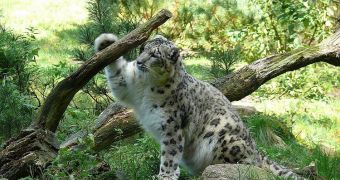Researchers at the University of California in Berkeley (UCB) want to put all vertebrate specimens available around the world in the digital environment. They are considering this massive body of data in the cloud, where researchers from all over the planet could access it more easily.
The goal is to promote scientific studies of vertebrates, as well as to make it easier for scientists to cross-reference and peer-review the data they obtain. Having access to a centralized archive containing all of Earth's vertebrate species may lead to incredible advancements.
Some of the fields that could benefit from this system include paleontology and evolutionary biology, which mostly deal with analyzing old life, and learning how species evolved over time, respectively.
Some experts say that the UCB team is attempting to do for vertebrate animals about the same thing that Google attempted to do for books a while back. However, as far as the new library is concerned, storing the data in the cloud is unlikely to cause any copyright infringement, imaginary or not.
The researchers want to make hundreds of animal collections from around the world available, including those belonging to the Smithsonian Institution, the American Museum of Natural History, the National Museum of Natural History in Paris, and the UCB Museum of Vertebrate Zoology (MVZ).
A halfway point will be reached when all collections that include animals with backbones are centralized and made available. The main reason why experts want collections put on the cloud is that this service is more readily accessible from anywhere in the world, and also faster and more reliable.
The total assembly of vertebrate specimens is called VertNet. Work on setting it up has already began this summer, with help from a 3-year, $2.4-million grant from the National Science Foundation (NSF).
UCB museum curators are leading the collaboration of experts that are involved in this process. The group also includes researchers from the University of Colorado in Boulder, the University of Kansas in Lawrence, and the Tulane University in New Orleans.
One instance where the absence of VertNet was widely felt was the aftermath of the 2010 Deepwater Horizon oil spill, VertNet coordinator David Bloom says. Researchers could have learned more about the animals that were affected by the crisis.
“But no one knew where the fauna were and how they might be impacted, even though the information that could tell them resided in bird and fish collections around the country,” Bloom explains.
“There was just no single place to go to find out where the collections were, and no easy way to put these data together, even now. We have to get started,” he concludes.

 14 DAY TRIAL //
14 DAY TRIAL //